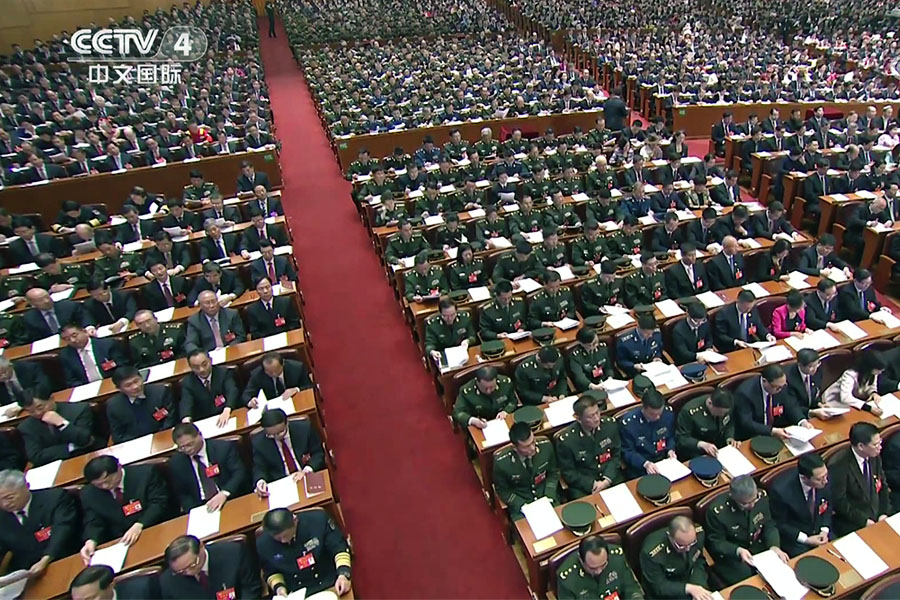◎ The sudden rescheduling of important provincial “Two Sessions” meetings suggests that the provincial-level officials have an even more important meeting to attend.
Several Chinese provincial-level governments (Beijing, Chongqing, Hainan, Yunnan, Fujian, and others) recently rescheduled their local “Two Sessions” meetings. The reschedules, some of which were made with only 10 days to go before the provincial “Two Sessions,” avoided the period from Jan. 19 to Jan. 24.
Local governments usually hold their annual provincial-level “Two Sessions” conclave in the first month of a new year, and scheduling is done a month in advance. Last-minute rescheduling is rare.
Our take:
1. The sudden rescheduling of important provincial “Two Sessions” meetings suggests that the provincial-level officials have an even more important meeting to attend. We believe that the more important meeting is the Fourth Plenary Session of the 19th Central Committee.
From the rescheduling dates, there is a good chance that the Fourth Plenum will be held from Jan. 20 to Jan. 23.
2. We previously explained the significance of the Fourth Plenum meeting (see here and here). In particular, we wrote that Xi Jinping “must hold a Fourth Plenum to set the reform agenda. If no Fourth Plenum is held, this means that the factional struggle is extremely intense and Xi is in grave danger.”
Recent top-level meetings of the CCP elite confirm our assessment of trouble in the regime. For instance, the official reports of the Politburo’s “democratic life meeting” from Dec. 25 to Dec. 26 used language which indicates that Xi’s authority has been somewhat compromised. The official description of the meeting also suggests that the CCP elites had engaged in political negotiations rather than simply taking orders from and reporting to Xi the paramount leader as per the 2016 and 2017 edition of the “democratic life meeting.”
Further evidence that some compromise or consensus was reached amongst the CCP elites can be seen from the rescheduling of provincial-level “Two Sessions” meetings by several provincial-level governments on Dec. 27, a day after the Politburo meeting.
3. The Fourth Plenum agenda could include:
- Advancing institutional and economic reforms to meet U.S. demands. Officially, the CCP will likely continue to sell the idea of carrying out reforms “on its own terms,” but it may find ways to signal to America that it is diligently working towards implementing structural reforms;
- Clearly defining the status of private enterprises in the Chinese economy to eliminate financial risks and boost financial confidence;
- Tax cuts for private enterprises and measures to stabilize the unemployment situation;
- Poverty alleviation and lowering of social grievances;
- Promotion of local infrastructure bonds to expand construction works and stimulate the economy;
- Emphasizing Xi Jinping’s paramount authority to ensure that his reform policies are carried out efficiently.













